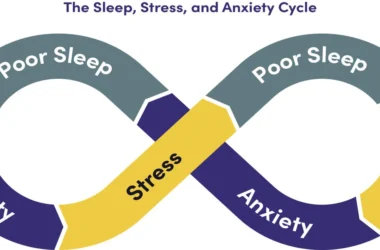[ez-toc]
Introduction
Heart disease is a leading cause of mortality worldwide, but the good news is that many cases can be prevented through lifestyle modifications and proactive measures.
By making informed choices and adopting healthy habits, you can significantly reduce your risk of heart disease.
In this article, we will explore key strategies and practical tips to help you maintain a healthy heart.
From nutrition and physical activity to stress management and regular check-ups, let’s delve into the most effective ways to protect your heart and improve your overall well-being.
Heart disease is the leading cause of death worldwide, but it is also one of the most preventable conditions. By following a few simple instructions, you can significantly reduce your risk of heart disease and lead a healthier, happier life.
Here are some tips to help you avoid heart disease:
Understanding Heart Disease
Heart disease encompasses various conditions affecting the heart and blood vessels. These include coronary artery disease, heart attacks, heart failure, arrhythmias, and more.
Familiarizing yourself with the different types and risk factors can help you better understand the preventive measures required to minimize your chances of developing heart disease.
Maintain a healthy weight
Being overweight or obese strains your heart and increases the risk of developing heart disease. By maintaining a healthy weight, you can reduce the chances of heart disease and other health problems.
Aim for a healthy body mass index (BMI) between 18.5 and 24.9, and consult your doctor regarding the development of a healthy diet and exercise plan.
Healthy Eating for a Healthy Heart
A well-balanced diet plays a crucial role in maintaining heart health. Incorporating nutrient-dense foods like fruits, vegetables, whole grains, lean proteins, and healthy fats can help reduce the risk of heart disease.
Opt for low-sodium options, limit saturated and trans fats, and prioritize foods rich in fiber and antioxidants.
Additionally, controlling portion sizes and reducing the consumption of processed foods and sugary beverages can further promote cardiovascular health.
Also read: Why We Should Not Use Too Much Sugar And How It Can Negatively Impact Our Health
Engage in regular physical activity
Engaging in regular exercise helps maintain a healthy weight, lowers blood pressure, improves cholesterol levels, and enhances overall cardiovascular function.
Aim for at least 150 minutes of moderate-intensity aerobic exercise or 75 minutes of vigorous-intensity exercise per week, along with strength training activities to strengthen your heart and muscles.
Quit smoking
Smoking is one of the most significant risk factors for heart disease. It can cause damage to your blood vessels, reduce blood flow to the heart, and increase the risk of heart attack and stroke.
If you smoke, quitting is the single most important step you can take for your heart health.
Consult your doctor about smoking cessation options such as nicotine replacement therapy, medication, or counseling.
Manage stress
Stress can negatively impact your heart health. Chronic stress can raise blood pressure, heart rate, and inflammation, thereby increasing the risk of heart disease.
Managing stress is vital for maintaining good heart health. Explore stress-reducing techniques such as meditation, yoga, or deep breathing exercises.
Quality Sleep for Heart Health
Adequate and restful sleep is vital for overall health, including heart health. Poor sleep quality and sleep disorders have been linked to an increased risk of heart disease.
Regular Health Check-ups
Routine health check-ups are essential for early detection and prevention of heart disease. Regular visits to your healthcare provider can help monitor blood pressure, cholesterol levels, and other key indicators of heart health.
Keep track of your numbers and follow your doctor’s advice on maintaining healthy levels. Addressing any underlying health conditions promptly can significantly reduce the risk of heart disease.







Thank you 🙏
I have a leaky valve, what appropriate exercises can I do? I try to have a healthy diet; I am very fond of leafy green vegetables and other fresh vegetables, of fresh fruits too. I am not fond of sweets or sodas but now I have learned that my blood test shows a problem linked to my leaky valve.